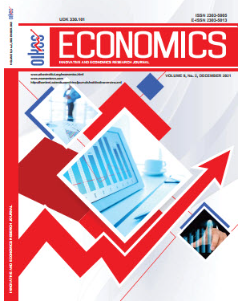THE IMPACT OF THE COVID-19 PANDEMIC ON THE MACROECONOMIC AGGREGATES OF THE EUROPEAN UNION
DOI:
https://doi.org/10.2478/eoik-2021-0023Abstract
Economic experts’ predictions of a slowdown in the EU’s global economy and
economic growth in the year 2020 were based on various risks and uncertainties
existing on a world scale, ranging from the US-China trade war, traditionally
strained relations of the EU and the US on the one hand and the Russian
Federation on the other, all the way to BREXIT and economic migration to
developed EU countries. However, the COVID-19 pandemic has further
aggravated those forecasts, so that the entire EU is recording a historic decline
in all macroeconomic aggregates. The beginning of the pandemic in the EU
was accompanied by the complete border lockdown of the entire Union, which
greatly affected the economies of the member states. The EU is experiencing a
decline of both real and nominal GDP, declining incomes, employment decline
and unemployment increase. This paper will investigate the impact of COVID-19
onto GDP, unemployment, and EU public debt. Correlation-regression analysis
confirms the positive correlation between these variables and the economic
crisis caused by the COVID-19 pandemic. In addition to the economic crisis, a
crisis of EU health systems, which requires huge economic investments. A more
prominent economic recovery is hard to expect until the global pandemic ends.
One thing is for certain, this economic crisis will continue in 2021, whereby a
more significant recovery is expected only in the year 2022. Certainly, it will take
years to make up for the economic losses caused by the pandemic.
